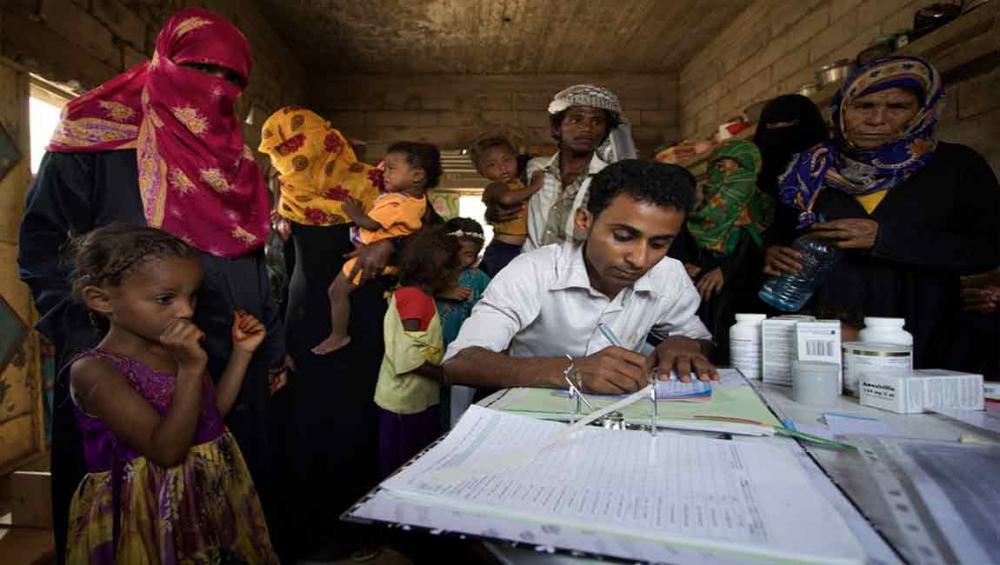Just Earth News | @JustEarthNews | 08 Feb 2018, 04:27 am Print

OCHA/Giles Clarke
New York, Feb 8 (JEN): With only 50 per cent of medical facilities fully functional in Yemen, the United Nations health agency is striving to fill a “critical” healthcare shortage and will use a $9.1 million emergency response grant to assist 630,000 vulnerable people in districts around Sana'a and al-Hudayda.
The World Health Organization (WHO) is working with partners “to fill critical gaps in the provision of basic healthcare, to respond to disease outbreaks, to strengthen disease surveillance, to distribute medical supplies and to deliver life-saving services to mothers and their children,” said WHO Yemen Representative Nevio Zagaria.
The grant from the UN Central Emergency Response Fund (CERF) will be used to deliver urgent health assistance to 189,000 internally displaced persons and 441,000 people from host communities, including chronically ill people, pregnant and lactating mothers, severely malnourished children, and injured people.
Assistance will be provided in the form of health services close to where they live, including for general services and trauma; child and nutrition care; reproductive, maternal and new-born care; mental health; and treatment for communicable diseases and life-threatening non-communicable diseases.
“CERF funding will provide additional resources help make our work possible at a time of great need for the people of Yemen,” said Zagaria.
With only half of health facilities fully functional, 16.4 million people in Yemen require assistance to ensure adequate access to healthcare, with 9.3 million in acute need. Ongoing outbreaks of cholera and diphtheria have underscored the impacts of a failing health system.
- New hybrid Mpox strain surfaces in UK and India — WHO sounds global alert
- Deadly weight: Obesity now responsible for 1 in 10 infection deaths worldwide
- Coffee and tea: This everyday drink may help protect your brain from dementia
- Happy Chocolate Day! The sweet secret behind chocolate’s hidden benefits
- Cambridge study finds menopause affects memory, mood, and sleep





-1763561110.jpg)
